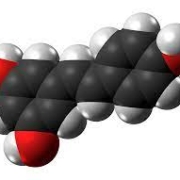Everything You Should Know About Resveratrol
Everything You Should Know About Resveratrol. Resveratrol is a natural compound found in plants like grapes, peanuts, and berries. It was first identified in the roots of the Japanese knotweed plant in the 1940s. Resveratrol can be extract from plant sources using solvents and chromatography techniques. Resveratrol is extract from the roots of Polygonum cuspidatum using a variety of methods, including solvent extraction and supercritical fluid extraction.
Solvent extraction involves soaking the plant material in a solvent (such as ethanol or methanol) to dissolve the resveratrol and other compounds. The resulting solution is then filter and evaporate to yield a crude extract that contains resveratrol.
Natural Resveratrol Vs Fermented Resveratrol
| Natural Resveratrol | Fermented Resveratrol | |
| Source | Grapes, peanuts, berries, and other plants | Modified version of natural resveratrol produced through a fermentation process |
| Extraction | Solvents and chromatography techniques | Produced through a fermentation process |
| Bioavailability | Lower than fermented resveratrol | Higher than natural resveratrol |
| Potential benefits | Reducing inflammation, improving heart health | Stronger antioxidant and anti-inflammatory effects than natural resveratrol |
| Safety and effectiveness | Generally considered safe and effective | Safety and effectiveness may vary depending on the specific fermentation process and source of resveratrol |
Benefits of resveratrol
Activating Sirtuins: Resveratrol’s Mechanism of Action
Resveratrol activates Sirtuin proteins, which play a crucial role in regulating cellular processes, such as metabolism, aging, and stress response. By activating these proteins, resveratrol provides a wide range of health benefits.
Reducing Cardiovascular Disease Risk
Studies have shown that resveratrol can lower cholesterol levels, reduce inflammation, and lower blood pressure, all of which are risk factors for heart disease. Resveratrol’s potential to reduce the risk of cardiovascular disease makes it an important compound for heart health.
Boosting Brain Health and Function
Resveratrol have neuroprotective effects, enhancing cognitive function and memory. It may even help to prevent age-related cognitive decline, making it an important compound for brain health.
Overall, resveratrol is a powerhouse polyphenol with the potential to support optimal health and prevent a range of age-related diseases. Whether through diet or supplementation, incorporating resveratrol into your routine can provide a wide range of health benefits.
Resveratrol: Why It’s Worth Considering and How to Take It
Resveratrol is a natural compound is in various plants that has been gaining attention for its potential health benefits. Here’s why you should consider taking it and how to do so safely and effectively.
How to Take Resveratrol
Resveratrol can be consume through the diet, particularly by eating foods that are high in resveratrol such as grapes, berries, and peanuts. It can also be use as a supplement, though.
Dosage
The optimal dosage of resveratrol is not yet clear and may depend on various factors, such as age, health status, and the reason for taking it. However, most studies have used doses between 150 and 500 milligrams per day.
Safety and Side Effects
Resveratrol is generally consider safe for most people when taken at recommend doses. However, some people may experience side effects such as headaches, gastrointestinal symptoms, or allergic reactions.
Additionally, resveratrol may interact with certain medications, including blood thinners, and may not be suitable for people with certain health conditions. It is always advisable to consult a healthcare professional before using a new supplement.
Give us inquiry right now.


